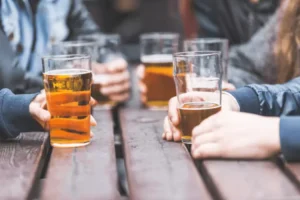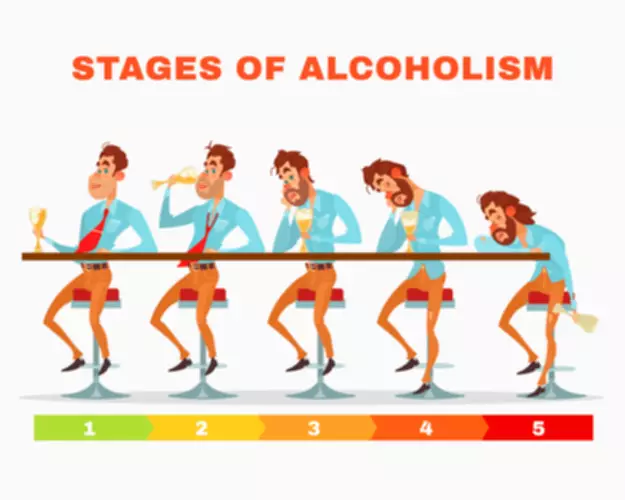
When people with diabetes relapse, it doesn’t mean they failed. It means they have to try again and continue to practice healthy eating. They may need to see a doctor or nutritionist and develop a healthy diet plan. As people progress through the stages of relapse, they exhibit various warning signs.
Does Alcohol Cause Stomach Pain? Yes, And Here’s Why.
- However, addiction is a disease, and you are still vulnerable to relapsing.
- Trauma plays a significant role in addiction and relapse, as unresolved traumatic experiences often lead individuals to self-medicate with substances to cope with emotional pain.
- Healing does happen and can continue even after a relapse, so it is important to never give up and to seek treatment for addiction as soon as possible.
- It is common, even expected that people who are attempting to overcome addiction will go through one or even several relapses before successfully quitting.
- If relapses — physical or mental — are becoming a more common occurrence, you might want to consider going back to rehab.
Similar to dependent drug behaviors, the process of recovery, and the reasons for relapse, are very personal. Relapse doesn’t indicate that the person is a ‘failure’ or ‘weak.’ It’s just prolonging old coping behaviors that need to be replaced with new ones. This type of learning is extremely important, and you’ll ideally come away from it with many useful coping strategies.

Sabino Recovery Can Help Prevent Relapse
The first thing you should do after recognizing that relapse has occurred is find safety. That may mean calling 911 if you think an overdose is possible. If you don’t think 911 is necessary, contact a sponsor, therapist or loved one you trust who can get you help. Cognitive-behavioral therapy is one of the most widely used psychotherapies in the treatment of a SUD. When applied, the concepts of this model can help with problematic thought patterns and balance emotional highs and lows. Unfortunately, addiction often comes with periods of sobriety and periods of relapse.

How Does Trauma Impact the Brain?
That’s likely part of it, but certainly not the entire reason. Frequently, it takes several attempts to successfully quit a behavior or substance. The best thing to do is help the person stay safe and get back on track. If you’re struggling and don’t know where to turn, please contact a dedicated addiction hotline for support and resources.
If the symptoms aren’t addressed during the first two stages, it doesn’t take long to lead to physical relapse. It’s important to get help immediately to stop the cycle of addiction before it’s too late. These symptoms can be challenging to manage and may interfere with a person’s ability to maintain sobriety. It’s important for individuals in recovery to be aware of the possibility of PAWS and to work with their healthcare provider or addiction specialist to develop a plan for managing symptoms. Addiction is a brain disease that is chronic and i relapsed remitting.1 Therefore, relapse can be part of the recovery process.
Relapse is a normal part of recovery from addiction to alcohol or other drugs. Addiction is a chronic disease of the brain, meaning it lasts for multiple months and affects the way the brain works. Substances of abuse change the way that the brain operates, causing people to compulsively seek addictive substances despite Halfway house harmful consequences.
Learn More

In most cases, you’re not met with the anger or shame that you’re dreading. The people you love usually appreciate your openness and are happy to see your recovery working even in the midst of a relapse. When you’re doing everything you need to do to turn back toward recovery instead of further into addiction, your family will see that. Roughly 40% to 60% of people with substance use disorders experience a relapse at some point during their recovery journey. Fortunately, thanks to dedicated support groups and treatment, there is hope for sustained recovery even after frequent relapses. It’s vital to approach this situation with self-compassion and understanding.
Other times, you follow all the rules of recovery for a long time, and you feel safe from relapsing. Addiction recovery is hard, which is why many avoid facing their issues. https://ecosoberhouse.com/ But you went through the process and faced your challenges.
- I can’t imagine any circumstance that would compel me to drink, and YET, I continue to work to keep my sobriety every day.
- Other times, you follow all the rules of recovery for a long time, and you feel safe from relapsing.
- A relapse for a sober person, means using said drugs and alcohol.
Thankfully, there’s a step-by-step process that can help you do just that. Recognizing the early signs of relapse could help you prevent it in the future, and recognizing when you’ve started relapsing could mean getting help in time. A relapse usually refers to a person using the substance they are recovering from, but it’s often not that black and white. Most people don’t just suddenly relapse; it’s something they build up to gradually over days, weeks, or even months. It should be stressed, however, that while such findings shouldn’t be dismissed as unimportant, they should also be understood within the context that relapse begins with a choice. Despite any biological motivations, addiction isn’t some body-snatching force that takes control.
- A person experiencing an emotional relapse tends to isolate themselves from support groups and may start harboring resentment toward others.
- Calls to numbers on a specific treatment center listing will be routed to that treatment center.
- Many rehab centers offer skills coaching, equipping you with healthy habits intended to improve your quality of life.
- While this might seem high or make you think that treatment doesn’t work, this rate is actually low compared to other chronic diseases.
- Ongoing trauma, such as an abusive relationship or a toxic living situation, can result in complex PTSD (CPTSD), which has slightly different symptoms than PTSD.
- Avoid self-blame and instead focus on what you can learn from this experience.
Thank you! If it’s time for you or a loved on to make a change…
In fact, you’ve already started ignoring a lot of these people and are spending more time alone. Humans are woefully good at filtering out the bad parts of our memories and focusing on the “good.” You have to force yourself to remember all aspects of your drinking to protect your sobriety. Whenever I find myself thinking fondly of my drinking days, I remind myself what happened AFTER the good part. Sure, the first few puffs on a cigarette and sips of a drink feel AWESOME. It could also be that you think you’ve got this “problem” beat and can start drinking moderately. Whatever the case, this is something you need to deal with, and FAST.